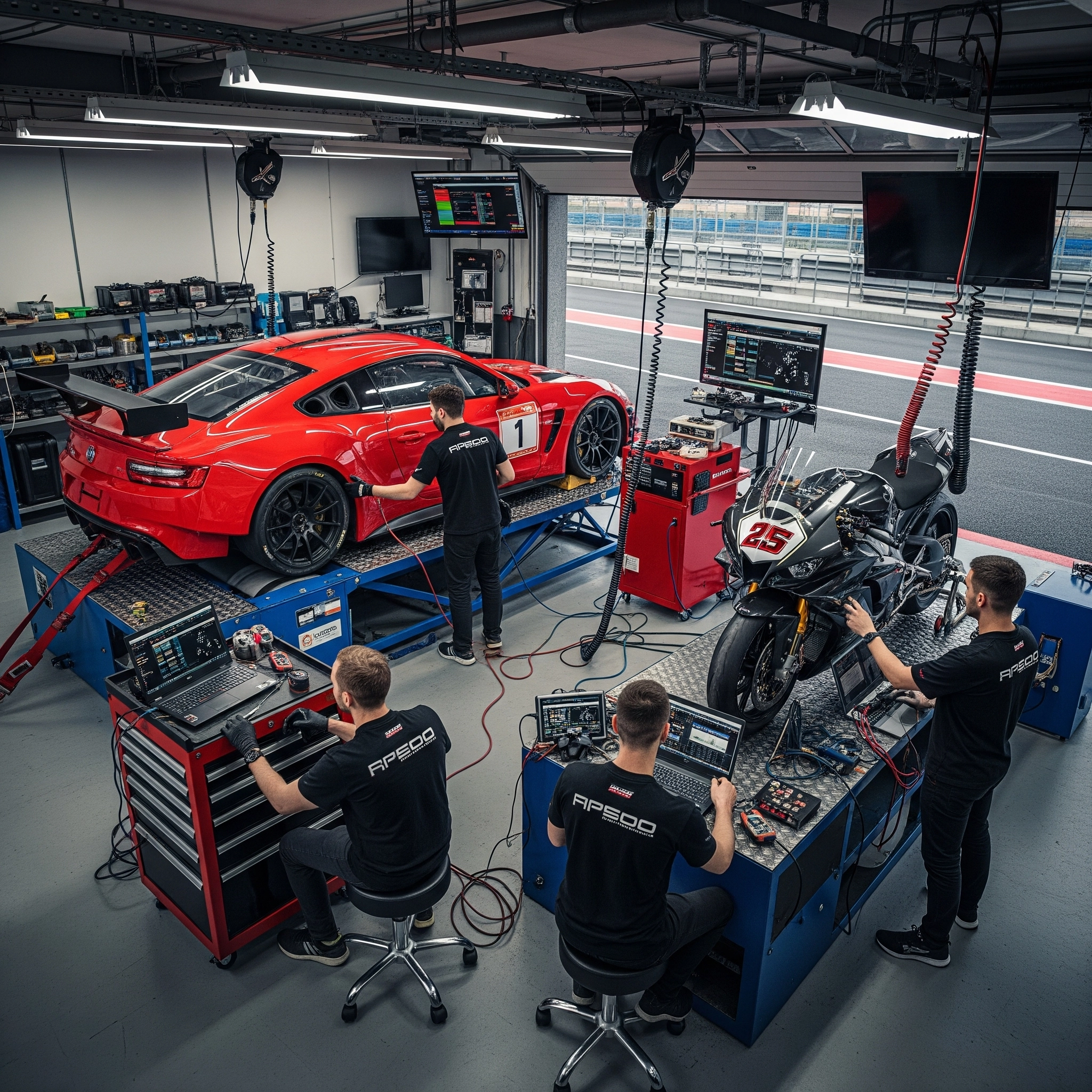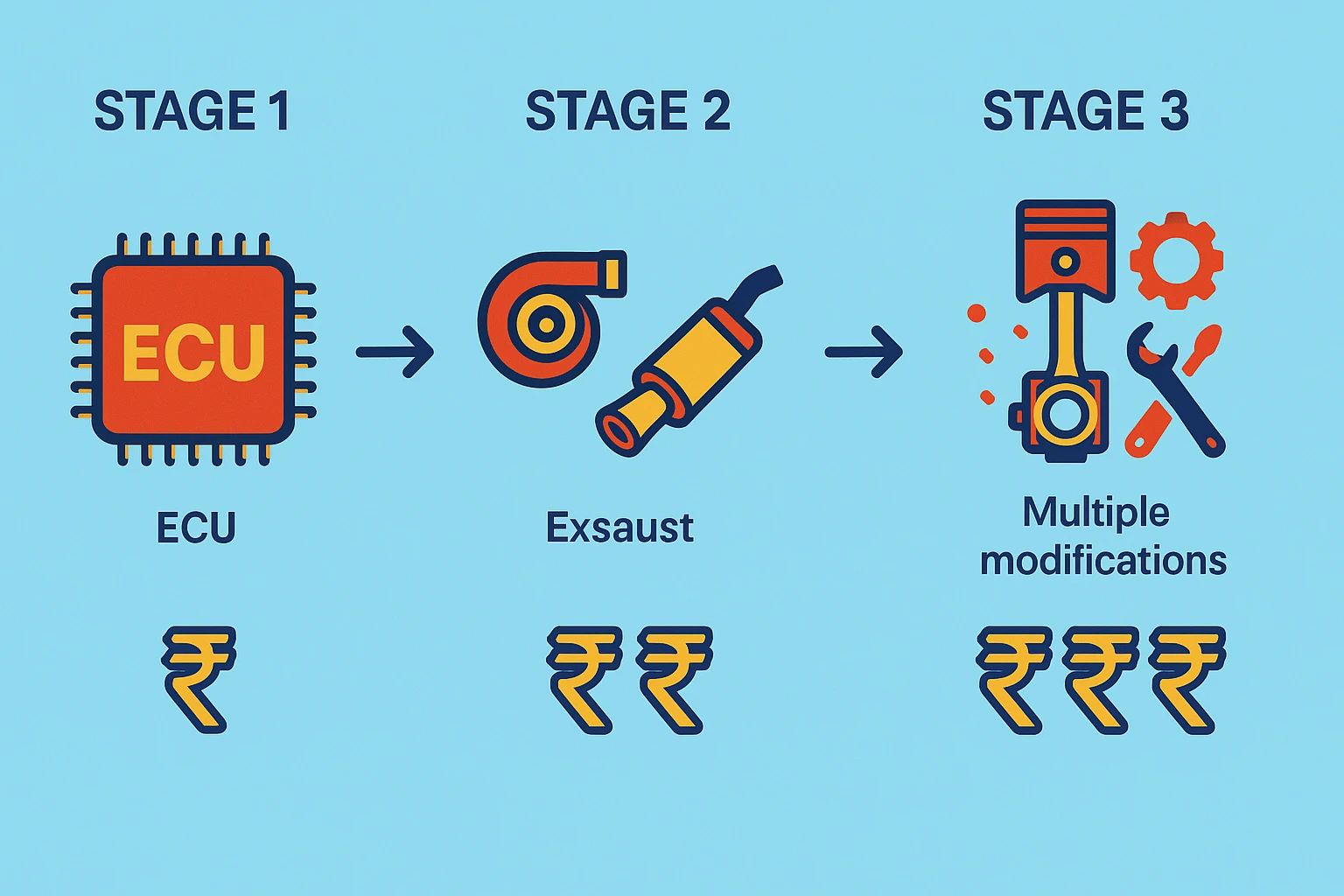The Role of ECU Tuning in Motorsport and Racing
Motorsport and racing have always been at the forefront of automotive innovation, pushing the limits of performance and technology. In modern racing, achieving a competitive edge requires optimizing every aspect of a race car, including its engine’s performance. Electronic Control Unit (ECU) tuning has emerged as a critical tool in motorsport, enabling teams to extract the maximum potential from their engines and gain a competitive advantage on the track.
In this blog, we will explore the essential role of ECU tuning in motorsport and racing, examining how this advanced engine management technique enhances performance, improves drivability, and contributes to achieving victory on race day.
1. The Evolution of Engine Management in Motorsport
The history of motorsport is closely intertwined with advancements in engine management technology. In the early days of racing, mechanical carburetors and ignition systems controlled engine operation. However, as technology evolved, electronic engine management systems replaced carburetors, bringing precise control and real-time adjustments to the engine’s operation. The introduction of ECUs revolutionized motorsport, enabling engineers and tuners to optimize engine performance and drivability with unparalleled precision.
2. Understanding ECU Tuning in Motorsport
ECU tuning in motorsport involves modifying the engine control software to achieve specific performance goals. Tuners and engineers adjust various parameters within the ECU, such as fuel injection timing, air-to-fuel ratios, ignition timing, and turbocharger boost pressure. These adjustments are tailored to the specific requirements of the racing team, the track conditions, and the driver’s preferences.
3. Customization for Different Racing Disciplines
One of the strengths of ECU tuning in motorsport is its versatility and adaptability to different racing disciplines. Whether it’s Formula 1, NASCAR, rally, or endurance racing, ECU tuning allows teams to customize engine performance to suit the unique demands of each racing category. For example, rally cars may require different power delivery characteristics to tackle rough terrains, while Formula 1 cars prioritize high-speed performance and responsiveness.
4. Maximizing Engine Power Output
In motorsport, engine power is a critical factor that directly influences a car’s lap times and competitive standing. ECU tuning plays a central role in maximizing engine power output by precisely adjusting fuel delivery, ignition timing, and other engine parameters. The ability to extract every ounce of power from the engine is essential for gaining a competitive edge in racing.
5. Enhancing Torque Delivery
Torque delivery is equally vital in motorsport, as it affects a car’s acceleration and drivability. ECU tuning optimizes torque delivery across the engine’s RPM range, ensuring that the engine delivers a consistent and predictable powerband. This enhancement allows drivers to extract the most performance from their cars, particularly during corner exits and overtaking maneuvers.
6. Improved Throttle Response
In high-speed racing, split-second decisions can make all the difference. ECU tuning can significantly improve throttle response, reducing any lag between pressing the accelerator pedal and the engine’s response. This enhanced throttle response allows drivers to make quick adjustments and take full advantage of opportunities on the track.
7. Managing Fuel Efficiency and Race Strategy
While racing is often associated with maximizing engine power, fuel efficiency also plays a crucial role in achieving success. ECU tuning allows teams to balance engine performance with fuel efficiency, optimizing fuel delivery to maintain competitive lap times while conserving fuel. Efficient fuel management is particularly crucial in endurance racing, where long races require strategic fuel stops and efficient pit strategies.
8. Advanced Data Logging and Analysis
ECU tuning in modern motorsport goes hand-in-hand with advanced data logging and analysis. Racing teams use sophisticated telemetry systems to monitor various engine parameters, including temperatures, pressures, and performance metrics. This real-time data allows engineers and tuners to make precise adjustments to the ECU during practice sessions and races, fine-tuning the engine for optimal performance.
9. Tailoring ECU Maps to Track Conditions
Different race tracks present unique challenges, such as tight corners, long straights, or varying weather conditions. ECU tuning allows teams to create custom engine maps tailored to specific track characteristics and ambient conditions. By adjusting the ECU map to match the track, drivers can exploit the car’s potential to the fullest and adapt to changing conditions throughout the race.
10. Custom ECU Solutions for Motorsport
In some cases, motorsport teams use custom ECU solutions designed explicitly for racing applications. These specialized ECUs provide even greater flexibility and control over engine parameters, allowing for highly specific tuning to match the team’s needs and the car’s unique setup.
11. Compliance with Racing Regulations
While ECU tuning offers significant performance advantages, motorsport teams must also adhere to racing regulations and technical specifications. Racing series such as Formula 1 and NASCAR impose strict rules regarding engine modifications and ECU tuning. Teams must strike a balance between pushing the limits of performance and staying within the confines of the rules to avoid penalties or disqualification.
12. Collaboration Between Engineers, Tuners, and Drivers
ECU tuning in motorsport is a collaborative effort that involves close cooperation between engineers, tuners, and drivers. Engineers analyze data, develop strategies, and fine-tune engine maps, while tuners implement the changes based on the engineers’ recommendations and driver feedback. The driver’s input is vital in providing real-time feedback on the car’s performance and drivability, helping the team optimize the ECU settings to suit the driver’s racing style.
Conclusion
In the high-stakes world of motorsport and racing, every fraction of a second counts, and achieving a competitive edge is paramount. ECU tuning has become an indispensable tool for racing teams seeking to optimize engine performance, enhance drivability, and gain a competitive advantage on the track.
By customizing engine parameters, maximizing power output, and fine-tuning torque delivery, ECU tuning allows teams to unleash the full potential of their race cars. With advanced data logging and analysis, teams can make real-time adjustments during practice and races, continuously optimizing the engine for peak performance.
However, racing regulations and the importance of engine reliability necessitate a careful and responsible approach to ECU tuning. By prioritizing engine safety and compliance with racing rules, motorsport teams can harness the power of ECU tuning to achieve success on race day and secure their place in the winner’s circle.



